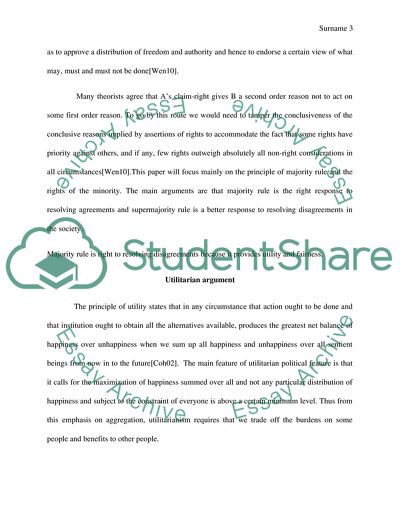Cite this document
(Majority Rule Is the Right Response to Resolving Disagreements in Outline, n.d.)
Majority Rule Is the Right Response to Resolving Disagreements in Outline. https://studentshare.org/social-science/1751008-majority-rule-is-the-right-response-to-resolving-disagreements-in-society-discuss
Majority Rule Is the Right Response to Resolving Disagreements in Outline. https://studentshare.org/social-science/1751008-majority-rule-is-the-right-response-to-resolving-disagreements-in-society-discuss
(Majority Rule Is the Right Response to Resolving Disagreements in Outline)
Majority Rule Is the Right Response to Resolving Disagreements in Outline. https://studentshare.org/social-science/1751008-majority-rule-is-the-right-response-to-resolving-disagreements-in-society-discuss.
Majority Rule Is the Right Response to Resolving Disagreements in Outline. https://studentshare.org/social-science/1751008-majority-rule-is-the-right-response-to-resolving-disagreements-in-society-discuss.
“Majority Rule Is the Right Response to Resolving Disagreements in Outline”. https://studentshare.org/social-science/1751008-majority-rule-is-the-right-response-to-resolving-disagreements-in-society-discuss.


